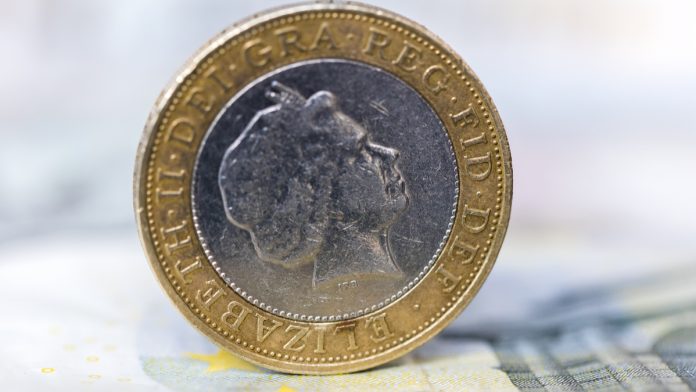- Pound (GBP) fell last week on recession fears
- This week could be a quiet week with the Jubilee bank holidays
- Euro (EUR) rose last week hawkish ECB comments
- German inflation data is due
The Pound Euro (GBP/EUR) exchange rate is moving a few ticks higher after losses last week. The pair lost -0.5% across last week, settling on Friday at €1.1757 after trading in a range between €1.1643 – €1.1861. At 05:45 UTC, GBP/EUR trades +0.04% at €1.1762.
The Pound fell last week after weaker than forecast services PMI data unnerved investors. Service sector activity dropped to 51.8 in May, well below the 57.3 forecasts. The decline in the dominant sector of the K economy raised fears that the UK is heading for a recession.
The pound found some support from comments from Bank of England governor Andrew Bailey who said that the central bank was prepared to raise interest rates again to bring down 40-year high inflation.
Finance Minister Rishi Sunak also boosted the pound after announcing support for households amid the cost-of-living crisis. Rishi Sunak pledged £650 payments to around 8 million of the lowest-income households.
This week is likely to be a quiet week for the pound given that it is a short week given the Queen’s Jubilee bank holiday weekend.
There is no high impacting UK economic data due to be released today.
The euro pushed higher last week after several members of the European Central Bank, including President Christine Lagarde, adopted a more hawkish stance.
Christine Lagarde set the scene for several interest rate hikes across the summer and even suggested that she would be open to a 50 basis point rate hike should data suggest that it is needed.
Data last week was mixed. Whilst German GDP was unexpectedly revised higher year on year to 3.8%. PMI data for the eurozone was weaker than forecast.
Looking ahead there is plenty of data to keep investors entertained. Eurozone consumer confidence is expected to hold steady at -21.1. However economic sentiment is expected to tick lower to 104.9 from 105 in May.
German inflation data is expected to show that consumer prices rose again in May to a fresh record high of 8% year on year up from 7.8%.





